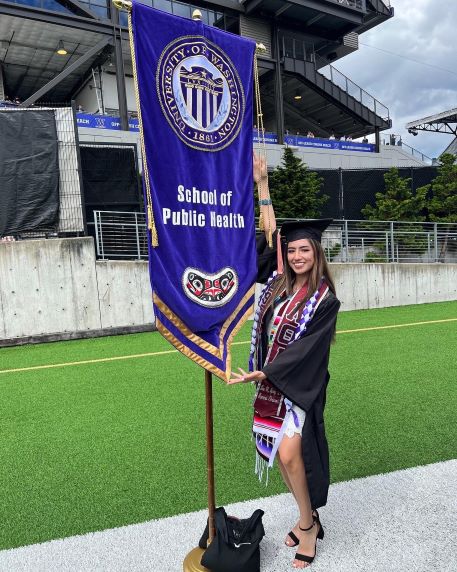How WSOS supports students facing food and housing insecurities
By Veronica Craker
A new survey conducted by Western Washington University and the Washington Student Achievement Council (WSAC) reports that nearly half of Washington college students experience housing and food insecurities. These troubling statistics reveal the necessity for organizations like Washington State Opportunity Scholarship (WSOS) to address students’ needs while pursuing higher education. The “Basic Needs Security Among Washington College Students” survey included more than 9,700 students from 39 colleges and universities.
According to the report, one out of 10 students experienced homelessness in the last 12 months. Data from the Washington Office of Superintendent of Public Instruction, as compiled by The Seattle Times and The Center for Public Integrity, show Washington students faced with homelessness, even once, are at a greater risk of “poor academic performance, dropping out of school and becoming homeless as an adult.”
“[The scholarship] meant stability and hope for a better future. I was able to focus more on my studies and less on rent, food, books, miscellaneous, etc. The scholarship changed my life, especially during the Covid-19 pandemic, because of my increase in credits, which led to an increase in award money which helped me during an unpredictable time.”
Emely Barragan Diaz, Opportunity Scholar
Thanks to recent investment from the Legislature, Washington state has one of the most robust financial aid programs in the nation. For many low-income students, programs like the Washington College Grant provide enough to cover tuition and fees. However, that still leaves students trying to piecemeal funding for other needs such as housing, transportation, food and childcare. Covering those costs has only become more challenging as our region grapples with a housing crisis, rising inflation, a shortage of childcare providers and limited access to health care.
Washington State Opportunity Scholarship can help bridge the gap for many students who are able to use our flexible aid for more than just tuition. Many use their funds for living expenses. This work is vital, as Washington is experiencing drops in higher education enrollment and is lagging in credential attainment. If this course continues, it could threaten the state’s economy as employers struggle to hire the talent they need. The jobs in Washington that lead to a living wage often require postsecondary education. But if our students can’t stay in school because of hunger or homelessness, it creates a cycle of poverty that hurts communities and industries.

Opportunity Scholar Emely Barragan Diaz, whose Opportunity Scholarship was made possible by the Rubens Family Foundation, shared how her scholarship was essential during the onslaught of COVID-19 as she was studying for her Master’s in Social Work.
“It meant stability and hope for a better future. I was able to focus more on my studies and less on rent, food, books, miscellaneous, etc. The scholarship changed my life, especially during the Covid-19 pandemic, because of my increase in credits, which led to an increase in award money which helped me during an unpredictable time.”
Research from WSAC found programs like WSOS improve the long-term economic outlook for low-income Washington students.
Michael Meotti, WSAC executive director, said in a media release that this research shows, “Our state’s investment in building the most affordable educational environment in the country contributes to closing some of the equity gaps that stand in the way of opportunity for all Washington residents.”
Making higher education accessible to everyone extends from the state, nonprofit organizations and even into the institutions themselves. Many colleges and universities across the state are doing the work of supporting students through healthcare access, emergency scholarships and even with food insecurity support.
Columbia Basin College (CBC) in Pasco is one of many colleges that provides student emergency funds. This one-time scholarship was established to assist students experiencing an unforeseen financial crisis. The fund at CBC offers small grants to students for hardships that are unlikely to occur again.
At Pacific Lutheran University in Tacoma and Central Washington University in Ellensburg, a student and staff food pantry are available to anyone in need.
Most Opportunity Scholars are low-income, first-generation and students of color. Systemic barriers of intolerance, discrimination and social injustice are deeply rooted in history and impact our state’s underrepresented communities. We see this in the data as students of color, low-income and first-generation college students are far more likely to report basic needs insecurity and are earning postsecondary credentials at far lower rates than their peers. We challenge ourselves and our partners to dismantle these barriers on behalf of our Scholars.
Since its inception, WSOS has created a path for 7,404 Scholars to earn their bachelor’s degree and more than 500 to achieve a community or technical college credential. Opportunity Scholars are more likely to graduate, take on less debt and earn more than their peers. Once in the workforce, graduates from the Baccalaureate Scholarship (BaS) program earn double what their family made just five years into their career and our community and technical college recipients earn three times what their family made after just one year. This commitment to Washington students is vital to a healthy economy.
